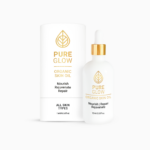The health claim on Kraft Live Active is “proven to lower cholesterol”.
I was at the grocery store recently and was perusing the aisles as I often do looking at what manufacturers are making and claiming and I found this ludicrous claim by Kraft with their product live active, cheese and cream cheese. The ingredients are bad enough, in the cream cheese there is; skim milk, starter culture, enzymes, milk, cream, starter culture, plant sterol esters, water, milk solids non fat, vegetable gums (407), 410,) salt, thickener 1422, food acid 330, preservative 200.
But worst of all, was the ridiculous health claim “proven to lower cholesterol”. They say this because they have made this food with a plant sterol. I had been reading only a few days ago the latest information on plant sterols and heart disease. A large study was undertaken and the conclusion was that ”Our systematic review and meta-analysis did not reveal any evidence of an association between serum concentrations of plant sterols and risk of CVD”. In other words the claim on Kraft Cheese and cream cheese in unfounded and untrue and these fundamental foods are a farce. Margarine has the exact same claim because they have also added plant sterols.
I called Kraft to complain but I’ve not heard anything from them as yet.
Happy reading labels. As consumers we need to be diligent and on the look out for false claims and question these companies about their claims. If you see anything like this please send it to me and I’ll investigate it. Following is the abstract from the The European Heart Journal 2012. There is also a link if you want to read the whole study.
Cyndi
Plant sterols and cardiovascular disease: a systematic review and meta-analysis. Bernd Genser et al
Abstract
The impact of increased serum concentrations of plant sterols on cardiovascular risk is unclear. We conducted a systematic review and meta-analysis aimed to investigate whether there is an association between serum concentrations of two common plant sterols (sitosterol, campesterol) and cardiovascular disease (CVD). We systematically searched the databases MEDLINE, EMBASE, and COCHRANE for studies published between January 1950 and April 2010 that reported either risk ratios (RR) of CVD in relation to serum sterol concentrations (either absolute or expressed as ratios relative to total cholesterol) or serum sterol concentrations in CVD cases and controls separately. We conducted two meta-analyses, one based on RR of CVD contrasting the upper vs. the lower third of the sterol distribution, and another based on standardized mean differences between CVD cases and controls. Summary estimates were derived by fixed and random effects meta-analysis techniques. We identified 17 studies using different designs (four case–control, five nested case–control, three cohort, five cross-sectional) involving 11 182 participants. Eight studies reported RR of CVD and 15 studies reported serum concentrations in CVD cases and controls. Funnel plots showed evidence for publication bias indicating small unpublished studies with non-significant findings. Neither of our meta-analyses suggested any relationship between serum concentrations of sitosterol and campesterol (both absolute concentrations and ratios to cholesterol) and risk of CVD. Our systematic review and meta-analysis did not reveal any evidence of an association between serum concentrations of plant sterols and risk of CVD.






0 Comments